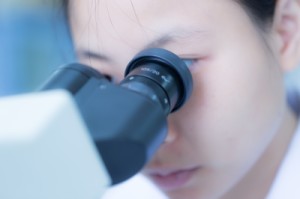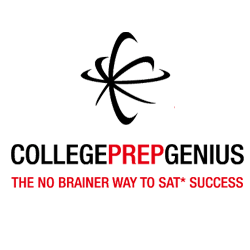When you look at a list of requirements to graduate high school or the required courses needed in order to apply for college you will almost always see a specified number of science credits – and usually it will be required that the majority of these credits have a lab component. This simply means that your courses should include hands-on experiments. Fortunately, most science courses are already set up in this manner. High school science requirements are specific for each state.

Remember that most high school sciences require a lab.
A traditional course of scientific study in high school includes Biology, Chemistry and Physics as these courses will prepare you for science in college. Most public schools require some combination of these three sciences. As a homeschooler, you, of course, may choose other sciences that your student is interested in or even continue beyond these three to Anatomy, Zoology, Marine Biology, Botany, etc. Just be sure to take rigorous science courses if your student is college bound.
Studying science is all about observation and analysis, so don’t bypass the labs. You will find that Biology and Anatomy are strongly vocabulary driven while Chemistry and Physics will incorporate math skills. In fact, it is recommended that a student complete Algebra 1 before taking Chemistry or Physics.
Here’s a list of academically strong science textbooks available to homeschoolers. It is, of course by no means an exhaustive list, but it’s a great place to start:
- A Beka Science texts
- Apologia’s Exploring Creation Through.. series
- BJU Press Science texts
My favorite resource for lab materials is Home Science Tools. In fact, they have the kits already put together for your particular curriculum.
As a final note, many families have been asking whether Physical Science is still a viable high school credit. Physical Science is still listed in the acceptable list of high school sciences; however, many public high schools have removed it from their science track as they want students to take the more rigorous courses listed above.
You may choose among many sciences so choose the ones that you will enjoy. Just be sure that you choose academically rigorous courses if your student is college bound and take any pre-requisites needed (for example, taking Biology will prepare you for Anatomy) so that your student is prepared to meet the demands of whatever course they choose.
By the way – you will note that most sciences include the teaching of evolution. The science AP tests and SAT II subject tests include evolutionary based questions. The curriculums that I have listed deal with the teaching of evolution from a Creationist worldview so that your students will understand what is being taught, but are also given the Scriptural view of our origins.
~ to your success
Joanne
Image courtesy of Photokanok / FreeDigitalPhotos.net





Speak Your Mind